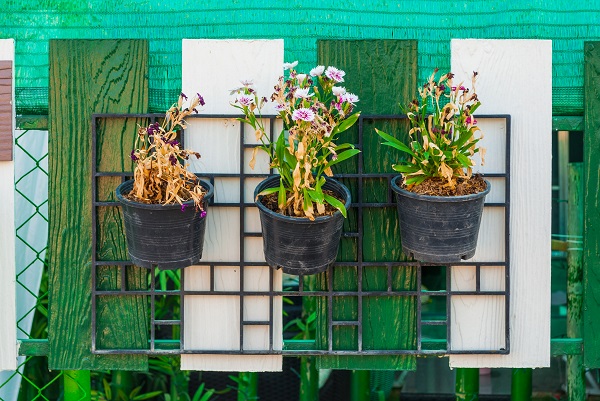It’s frustrating to let go of a plant, but sometimes the money and time spent trying to keep it alive just isn’t worth it. How do you know when to give up on a plant?
Why is the Plant Important?
If you’re worrying over a plant or shrub, stop for a moment and think about why it’s so important to you. Some reasons people spend time and money trying to keep a plant alive are:
• They grew the plant from seed. It’s an accomplishment to nourish a plant from seedling to adult plant and very disappointing when the plant develops a disease or simply doesn’t thrive.
• It was a gift. The plant itself may not be unique, but it’s special because it was a gift.
• It’s an exotic plant. Some exotics can be quite pricey, and no one likes the idea of losing a substantial amount of money.
• The plant is integral to your landscaping. Losing it may make your design uneven, or it may be a centerpiece of your landscaping.
• It’s an old plant. It’s understandable to be attached to your grandmother’s azaleas or irises and to go above and beyond to save them when they start to wane.

What Can You Do to Save a Plant?
Identifying the cause of the plant’s decline is the first step. You may be able to see insects on the leaves or grayish spots indicative of a fungus. Older plants may start to fade or die off if they aren’t getting enough sunlight. If you live in an old house, the nutrients in your flowerbed soil may be exhausted.
If the plant is very important to you, call your landscaper. They may be able to eliminate insect pests, treat a plant disease or trim trees to let more sunlight reach your flowerbed. A landscaper can also recommend plant foods and supplements or aerate your flowerbed soil and add new, nutrient-rich soil. Shrubs may just require pruning. If wildlife is dining on your plants, your landscaper has various methods to deter them.
When Should You Give Up On a Plant?
Some plants just can’t be saved. It’s time to give up when:
• You’ve spent more money on a common plant than it’s worth.
• It’s too late in the season for a dying plant to recover.
• The plant has no sentimental value or can be replaced.
• The plant (usually a vegetable) has a disease that can spread throughout your garden.
• It’s a very old plant, like a blooming shrub or irises. Unfortunately, some plants are just too old to save.
If you have to remove old plants, you may want to replace them. You could also consider trying something new to change the look of your landscaping.
Things to Remember:
• No plant is irreplaceable
• Don’t overspend trying to save a plant
• Call your landscaper for help making a decision
We can diagnose what’s wrong with your plant, treat problems and replace plants. Call us today for assistance.
